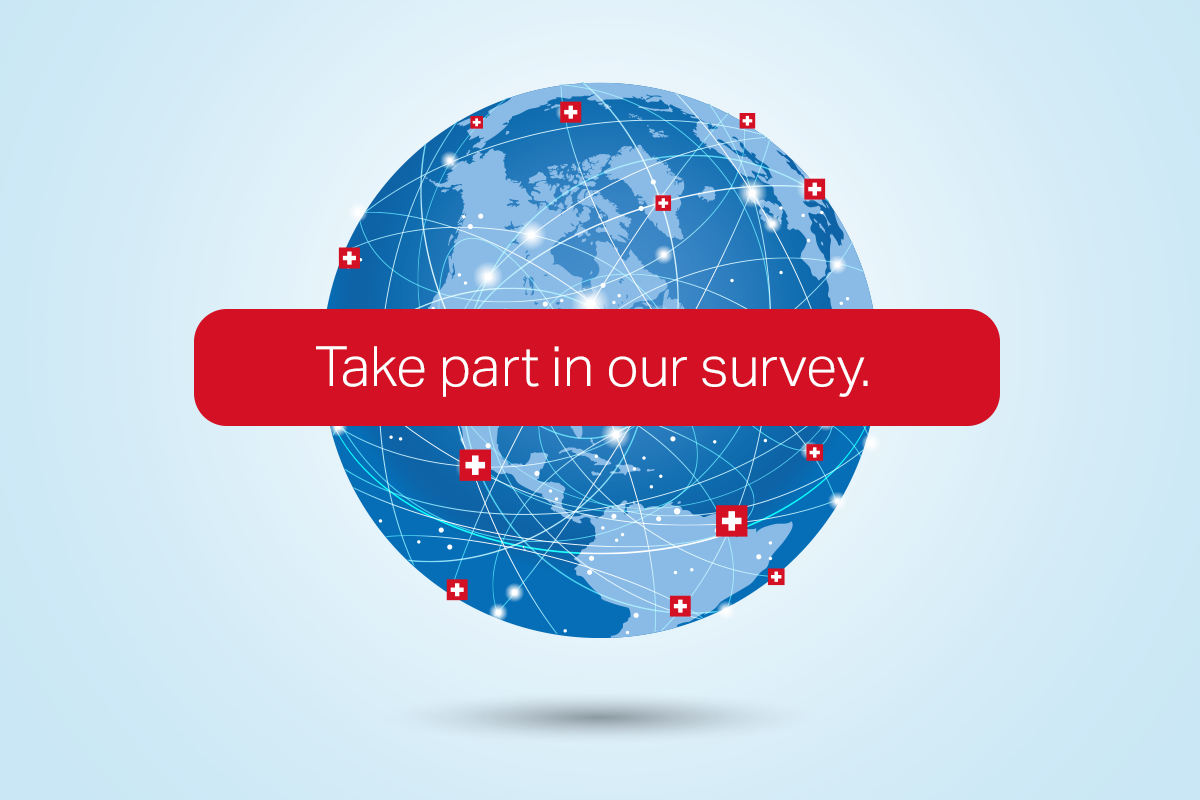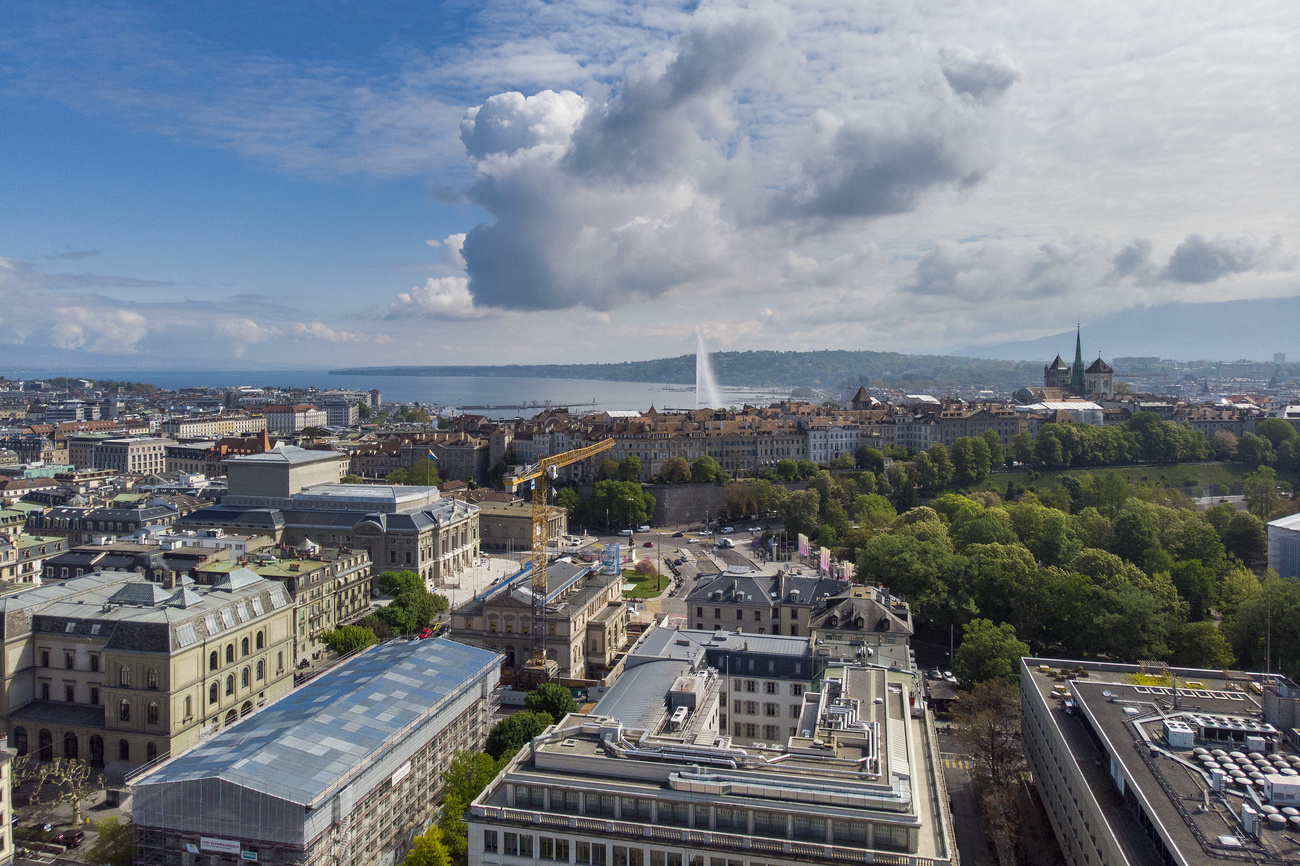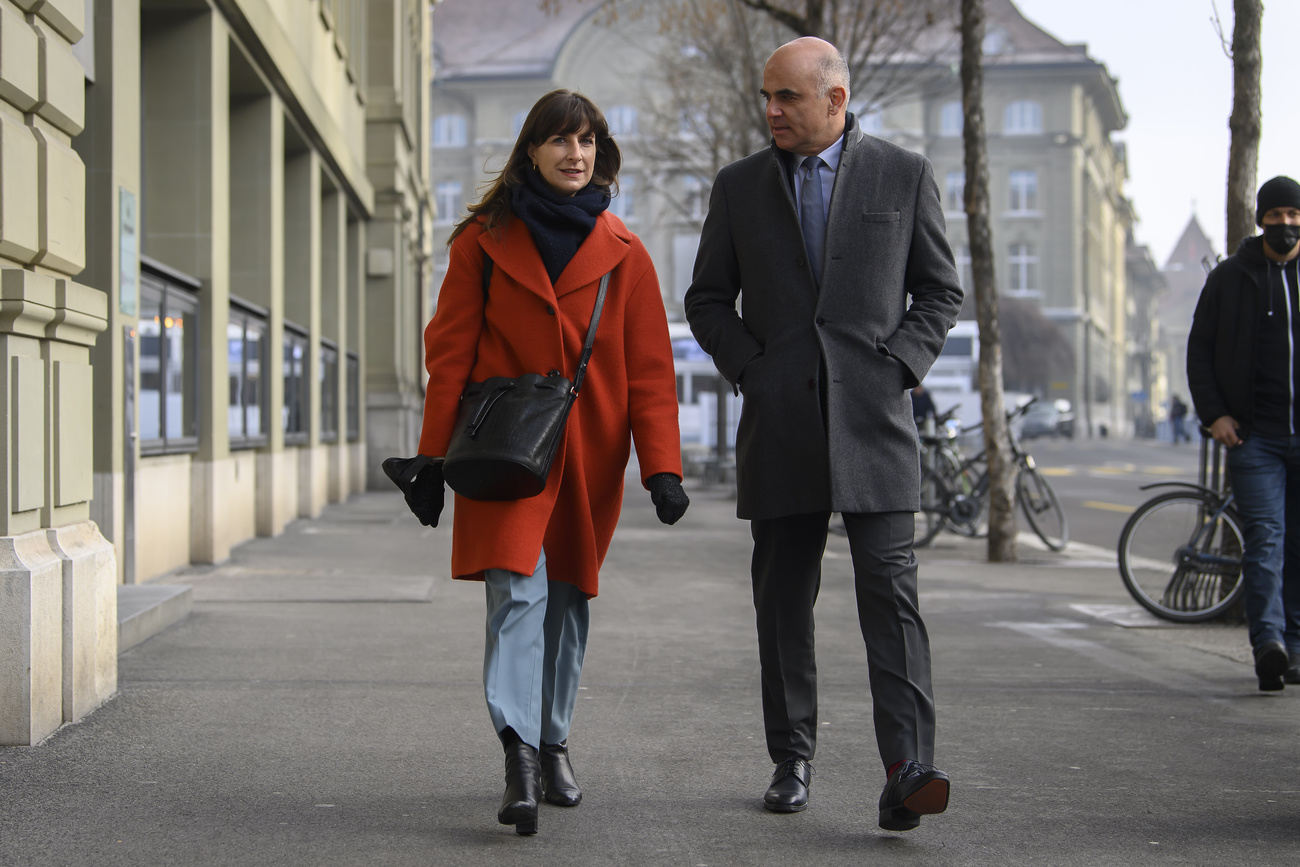
Switzerland Today
Greetings from Lausanne!
Here are the latest news and stories from Switzerland on Friday.
SWI swissinfo.ch is keen to find out more about your information needs and habits. You can help us by completing our online survey.

How do you keep up to date about the latest news in Switzerland?
What are the most important things for you when consulting the media? SWI swissinfo.ch would like to know more about your information needs and habits.
There are around 776,000 people worldwide who have a Swiss passport but do not live in Switzerland. SWI swissinfo.ch is interested in finding out how you get information on what is happening in Switzerland and in the rest of the world. We are also curious about how you stay in contact with Switzerland or with other Swiss citizens abroad. We hope we can count on your help so as to have plenty of meaningful input.
Click on the linkExternal link to take part in our online survey. It is being carried out by the intervista research institute on behalf of SWI swissinfo.ch. Thank you very much for your valuable support.

In the news: Swiss-Belarusian detainee Natallia Hersche, Geneva’s Havana Syndrome and a Vienna terror suspect.
- Natallia Hersche, the Swiss-Belarusian dual national held in Belarus for taking part in anti-government protests, has been visited by a senior Swiss foreign ministry official, who reports she is in good health.
- Swiss prosecutors have dropped a case against one of two mensuspected of participating in the November 2020 terrorist attack in Vienna. The man, who was 24 years old at the time, visited the attacker in the Austrian capital and stayed a night with him a few months before the deadly attack that led to four people killed and 23 seriously injured.
- The Swiss Federal Intelligence Service confirmed to the Swiss news agency Keystone-SDA that it is aware of cases of Havana Syndrome among several US diplomats in Geneva (photo above), which were reported on Thursday by the Wall Street Journal. The Swiss spy agency refused to comment further. The Swiss foreign ministry is also in contact with the US embassy about the affair.

Covid-19: the next few weeks to be decisive for the Swiss hospital system.
Even if Omicron is less virulent than previous Covid-19 variants, its infectiousness will likely bring more hospital admissions and intensive care patients in the coming weeks, Swiss health minister Alain Berset (in photo above) warnedExternal link on Friday.
Covid cases have shot up in Switzerland since the end of December as the new Omicron variant spreads nationwide – it now accounts for 84% of cases. There were 32,150 new infections reported over the past 24 hours, the Federal Office of Public Health said today. Switzerland has one of the highest incidences of Covid in Europe. Swiss health experts say they expect the number of Covid infections to peak within the next 1-3 weeks.
Although hospital admissions and intensive care units are relatively stable, officials fear an increase due to the fast-spreading but less virulent Omicron variant. Health workers are exhausted after almost two years of the pandemic. During this latest fifth wave many are also off work after catching the Omicron variant.
“Omicron has the potential to push the hospital system to its limits, especially if there is a lack of staff,” warned Vaud Health Minister Rebecca Ruiz (in photo above). But she said the cantons were already preparing with extra beds.
Berset pointed out that the virus still has plenty of potential to spread further as there are over one million Swiss residents who are not vaccinated or have not caught and recovered from the virus.

Study: most people who move to Switzerland don’t stay.
Every year, up to 200,000 people emigrate to Switzerland, but just as many leave the Alpine country in the long term, according to the Federal Statistical Office.
In a new migration studyExternal link looking at the 2011-2020 period, it concludes that most people who move to Switzerland do not stay. Of the 223,000 people who emigrated to Switzerland in 2011, 52% had left ten years later.
Big differences emerge according to regions of origin. The proportion of returnees is highest among people from North America. Around 80% of Americans left Switzerland ten years after emigrating here.
Migration from Africa is also striking: 40% of Africans who moved to Switzerland left the country after just six months. Here it is assumed that there are many people who unsuccessfully apply for asylum in Switzerland and then leave the country again. Their short stay contrasts with that of people from South America: 90% of them are still in Switzerland after six months.
European immigration still accounts for the lion’s share. Over 100,000 people move to Switzerland from Europe every year. This compares with 5,000 from Africa or South America.
The study also revealed that half of Swiss nationals who emigrated in 2011 had returned to Switzerland by 2020; two-thirds of them had already done so in the first three years following their emigration. Among foreign nationals in the same period, the rate of return was 17%. Foreign nationals born in Switzerland are more likely to return than those born abroad.

In compliance with the JTI standards
More: SWI swissinfo.ch certified by the Journalism Trust Initiative
